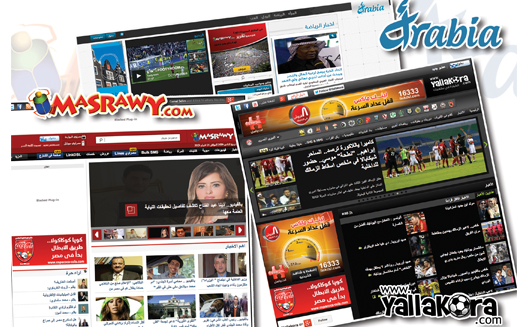How LINKonLINE Weathered the Political Storm in Egypt with New Revenue Models

 Until 2002, LINKonLINE was an online publishing section of
Link Dot
Net. Since it became an independent company, it
has undoubtedly become a true success story in the online
content industry and management in Egypt, now boasting 12
websites, employing 70 people and reaching 10.5 million users, or
one third of the Egyptian audience on the internet.
Until 2002, LINKonLINE was an online publishing section of
Link Dot
Net. Since it became an independent company, it
has undoubtedly become a true success story in the online
content industry and management in Egypt, now boasting 12
websites, employing 70 people and reaching 10.5 million users, or
one third of the Egyptian audience on the internet.
LINKonLINE has also proved its resilience in the face
the complex political situation in Egypt; iterating its business
model has kept it ahead in the online content
market.
“The advertising market has been affected by ongoing Friday
demonstrations, which caused several Thursday evening campaigns to
be cancelled, especially in 2011,” explains Moustafa
Kamel, the executive director of LINKonLINE.
Initially, advertising revenues comprised 50% of the
annual profits. After the Egyptian revolution, LINKonLINE began
focusing on other revenue streams that now make up 60% of the
company's profits.
New Revenue Models
To generate traffic in an uncertain time the team focused on
delivering the right news. “If a topic attracts lots of
visits, we give it more interest, follow-up and publish other
related topics.” Kamel explains.
LINKonLINE's site Masrawy was awarded the 2012 Forbes Middle
East prize for Most Influential Independent News website of the
year, thanks to its lifetime reach of over 200 million
visits.
Yet when Masrawy became more popular
than its sports portal YallaKora,
after the Egyptian league was suspended in the wake of the Port
Said massacre, the company's team began to rethink their ad model
and focus on four other revenue models:
- Subscription. They began offering
subscription to the instant messaging news service, which offers 24
features including infotainment channels (including jokes,
stock market news, car prices) that it disseminates to around
600,000 users.
- Transactions. LINKonLINE also sells
tickets on its Yallabina
website, offering Visa cards or cash payments as
compensation.
- SMS and mobile partnerships. It also
sells ads for used things on Mobawaba's websites while collecting
related fees (4 EGP or US $.060), and collects the balance via
mobile phone charges, thanks to a deal between Link Online and
Egypt's three mobile companies. The company also sells space in its
bulk instant messaging channels to stores, offering them
advertising about special offers or discounts.
- Renting. LINKonLINE grants publishers and telecommunication companies the right to use elemnts of its online content portal for a specific lease period so that these companies can avoid building a platform from scratch.
The platform plans to expand into the UAE, and Saudi
Arabia this year, and has determined that another good revenue
stream is B2B; the companyrented one of its programming designs to
Qatar to organize the Football World Cup ticket sales in 2015. The
company is also training the team that will be handling the rented
platforms to make sure they know how to use it.
Kamel summarizes the key success of Link Online in three
pieces of advice: hire skilled people and develop partnerships,
work on scalability, and innovate your business model. It is
now expanding to other Arab countries such as Saudi Arabia and
UAE.
Masrawy is looking for a regional expansion and for the
launch of a new platform version within few weeks. However, the
most important development concerns YallaKora website. Its design
is being developed to recognize users’ preferences and show content
that suits the user’s interests and desires. This also applies to
the “important news” section that includes topics related to the
user. In addition to that, the company is developing a program that
determines the visitor’s location to provide localized
news.


